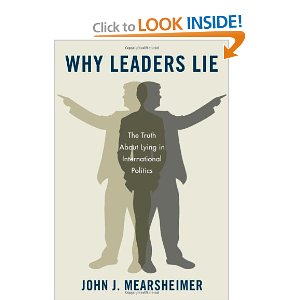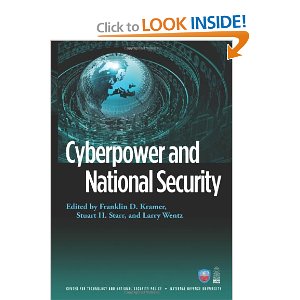
John J. Mearsheimer
![]() Cornerstone, Not the Whole Building
Cornerstone, Not the Whole Building
January 2, 2011
By no stretch should this book be dismissed as a three. While I might normally have gone with a four, I am settling on five for balance and because the author not only covers an extraordinarily important topic in a sensible measured way, but his endnotes are another book all by themselves–I recommend all readers start there.
Where the author falls short is in lacking a strategic analytic construct for measuring the true costs of lying in blood, treasure, and spirit. He tends to ascribe pure motives to leaders (for example, not at all confronting the raw fact that Dick Cheney committed 23 documented impeachable acts (see my review of Vice: Dick Cheney and the Hijacking of the American Presidency for the itemization) and Dick Cheney also led the telling of 935 documented lies best covered by TruthDig but also in Weapons of Mass Deception: The Uses of Propaganda in Bush's War on Iraq.
The book disconnects grand strategy (global engagement) from domestic prosperity in a manner I find disconcerting, and while the author is most able in documenting the costs to a democracy of lies to the public, I do not see nor feel the deeper reality: lies destroy the Commonwealth. Lies allow a two-party tyranny to sell out to the Arabs (not just the Israelis), to Wall Street–lies permit the mortgage clearinghouse fraud, the derivatives fraud, and the Federal Reserve fraud on the one hand, while also fooling the public into a national security policy that is clinically insane, catastrophically costly, and ultimately a self-inflicted wound that could be fatal.
Continue reading “Review: Why Leaders Lie–The Truth About Lying in International Politics”










